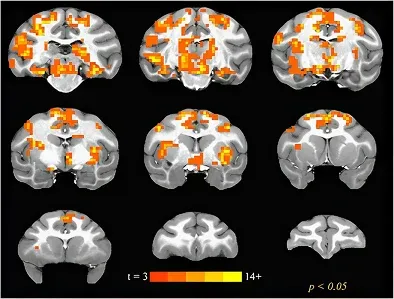Best Protein for Muscle Recovery: Importance and Tips for Patients Undergoing Treatment

When you’re on the mend, whether it’s from surgery, an injury, or just a tough workout, you want to do everything you can to help your body heal. One of the most important nutrients that can help in this process is protein.
But with so many options out there, you might be wondering: what’s the best protein for muscle recovery? Let’s explore why protein is essential for your recovery journey and how to choose the right kind for you.
How does protein help in muscle recovery?
When you go through any physical stress, be it a major surgery or an intense workout, your muscles experience wear and tear. To repair this damage, your body needs proteins.
Proteins are made up of amino acids. When you consume protein, your body breaks it down into these amino acids. As a result, they are used to rebuild and repair damaged muscle fibers. Think of them as the building blocks your body uses to rebuild and strengthen damaged muscle fibers.
Consuming enough protein speeds up your body’s healing process and minimizes muscle loss while inactive. Research indicates that individuals recovering from surgery or serious illness may need anywhere from 1.2 to 2.0 grams of protein per kilogram of body weight daily.
Benefits of protein for muscle recovery
Now, let’s look more closely at what protein does for the body when it’s in recovery mode.
1. Promotes muscle repair
One of the main functions of protein is to repair and build muscle tissue. When you’re healing from surgery or an injury, your body needs extra protein to replace lost or damaged muscle.
Studies show that getting enough protein can speed up muscle recovery, helping you feel stronger and faster. For example, for patients with brain tumors, protein supplements have helped improve muscle strength and overall health, making it easier to stay active and recover.
2. Supports immune function
Your immune system is like a superhero team for your body, fighting off infections and keeping you healthy. When you’re recovering, it’s super important to keep your immune system strong to avoid getting sick again. And protein is a great way to support that!
Research indicates that certain amino acids in protein, like arginine, glutamine, and cysteine, help activate immune cells, increase antibody production, and improve overall immune function. For example, people with conditions like inflammatory bowel disease benefit from adequate protein, which can lower the risk of infections.
3. Increases energy levels
Feeling tired is common during recovery, and protein can help improve your energy levels. It provides a steady source of fuel that keeps you going throughout the day. Including protein in your meals can help you feel more energetic and ready to take on daily tasks.
Research shows that meals rich in protein can increase energy intake, helping hospitalized patients improve their nutrition and recover faster. Simple snacks like cheese before bed can also increase your daily protein intake by about 17%, providing an extra boost of energy.
4. Prevent muscle loss
When you’re not as active due to an illness or injury, your body can start losing muscle. This is especially common in conditions like cancer, chronic obstructive pulmonary disease (COPD), or after surgeries. Getting enough protein is important because it helps preserve muscle mass and strength.
Research shows that increasing protein intake can slow muscle decline, particularly in adults at risk. For people with muscle-wasting conditions, protein supplements can help in protecting against further muscle loss.
Need help with your recovery journey? Contact QCG for for access to top health professionals worldwide!
Choosing the best protein for muscle recovery
So, what’s the best protein for muscle recovery? Let’s break down some of your top options:
Whey protein
Whey protein is a favorite option for many people. It’s a protein that comes from milk and digests quickly, supplying all the essential amino acids your body needs to rebuild muscle. You can easily mix it into shakes or smoothies, making it a quick way to get protein for muscle repair.
Casein protein
Casein protein also comes from milk but it digests more slowly than whey. This means it can provide a steady flow of protein over a longer period of time. Because of this, some people like to take casein protein before bed, allowing the body to heal and repair muscles overnight.
Collagen protein
Collagen is a different kind of protein that’s especially good for joint and tissue health. If you’re recovering from an injury that affects your joints, tendons, or ligaments, collagen can help repair these areas. It’s often found in powder form, which you can add to drinks or soups.
Plant-based protein
For those who prefer plant-based diet, proteins from peas, rice, or hemp can be just as effective. Plant proteins may lack some amino acids on their own, but you can combine them (like pea and rice protein) to make a complete source of protein. These are good options for anyone who is vegan or sensitive to dairy.
Tips for getting enough protein
Not sure how to add more protein to your diet? Here are some easy tips to help you reach your protein goals during recovery:
Start your day right
Starting with a protein-rich breakfast can set you up for a better day. Try options like scrambled eggs, Greek yogurt with fruit, or a smoothie with protein powder. Getting protein in the morning can help with energy and keep your muscles nourished all day.
Eat high-protein snacks
Having protein-rich snacks available can make it easier to meet your daily needs. Nuts, cheese, Greek yogurt, and protein bars are easy options to grab whenever you’re feeling hungry between meals.
Use protein powders
If whole foods aren't appealing or you have difficulty meeting your protein needs, consider using protein powders for muscle recovery. You can add them to drinks, shakes, or even your morning oatmeal. Choose a type that works for you, whether it’s whey, casein, or a plant-based option.
Plan balanced meals
Try to eat high-protein foods for muscle repair. Include a protein source with every meal, along with whole grains, vegetables, and healthy fats. Here are best foods for muscle recovery and growth:
- Eggs
- Salmon
- Chicken breast
- Tofu and tempeh
- Lentils and chickpeas
Stay hydrated
Protein alone isn’t enough—hydration is just as important! Drinking water helps your body absorb nutrients, including protein. Make sure to drink water throughout the day, especially if you’re increasing your protein intake.
Ready for a nutrition plan? Get in touch with QCG to find a dietitian across the globe!
Speed up your recovery
Make sure you get best protein for muscle recovery and staying healthy, especially if you’re dealing with illness or recovering from surgery. Protein helps your muscles heal, boosts your immune system, and keeps your energy up while preventing muscle loss.
To make the most of your protein intake, pair it with regular exercise and good habits like staying hydrated and getting enough sleep. This combination can really help you recover faster.
By focusing on both your protein and being active, you’ll feel stronger and get back to your daily routine more quickly. Remember, every small effort adds up on your path to recovery!

